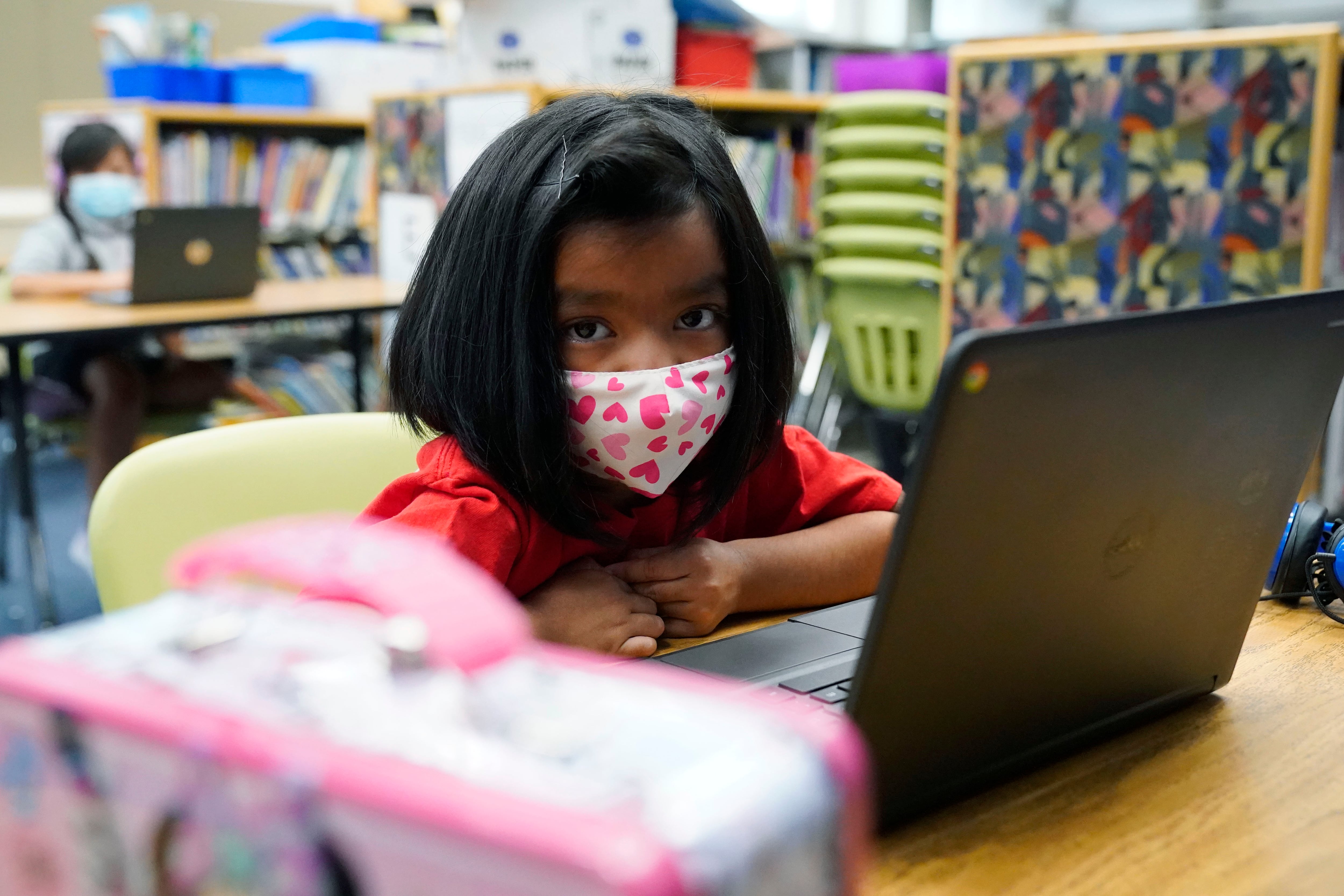Denver will no longer require masks in schools and child care settings after Feb. 25, becoming the latest in a series of counties to lift their local mask mandates.
Following that policy change, Denver Public Schools will no longer require masks in schools starting Feb. 28, though masks are still strongly encouraged, according to an email sent to parents.
The email quotes Dr. Steven Federico, director of pediatrics for Denver Health: “Coming out of omicron, we’re now at a different phase of the pandemic. The focus moving forward needs to be on vaccination — including boosters for teens and adults, as well staying home and getting tested when we’re sick. The lifting of this mandate does not mean that individuals should not or cannot mask.”
The Denver Department of Public Health and Environment announced the policy change Wednesday morning. Denver Public Schools can set more stringent policies, but in this case opted not to. The policy change means that child care centers and private schools can also set their own mask rules.
Denver public health officials cited falling case rates and the city’s high vaccination rate, even for children, as reasons to no longer require masks in schools.
“At this time, we believe lifting the face covering mandate is the right thing for students,” Bob McDonald, executive director of the Denver Department of Public Health and Environment, said in a press release. “DDPHE will continue to closely monitor the situation in schools and child care facilities and act accordingly if any changes with COVID-19 take place.”
An estimated 80% of Denver residents ages 5 and older are vaccinated, and Denver Public Schools requires employees to be vaccinated.
Colorado has not had a statewide mask mandate since last spring. But amid rising cases associated with the delta variant last fall, many counties adopted mask mandates, in particular for school settings, and many school districts adopted their own mask requirements.
In December, Douglas County School District dropped its mask requirement after new school board members who ran on that issue took office. Several school districts in the Pikes Peak region that had adopted mask mandates to limit student quarantines also went mask optional.
Denver let its mask mandate for other indoor spaces expire Feb. 4, but kept a requirement in place for schools.
Tri-County Public Health, which oversees Arapahoe and Adams counties, dropped its mask requirement for schools effective Feb. 4, and most school districts in those counties announced they would be mask optional. Jefferson County followed, with the school mask requirement set to lift Feb. 18 there.
Boulder County continues to require masks in schools, a policy that affects Boulder Valley and St. Vrain Valley school districts.






